As I was playing around with a swift tutorial, I started to write a custom isPrime method to check if a given Int is prime or not.
After writing it I realized it was working properly but found it a bit slow to perform isPrime on some quite large numbers (still much lower then Int.max).
So I wrote the same piece of code in objc and the code was executed much faster (a factor of 66x).
Here is the swift code:
class Swift {
class func isPrime(n:Int) -> Bool {
let sqr : Int = Int(sqrt(Double(n))) + 1
for i in 2...sqr {
if n % i == 0 {
return false
}
}
return true;
}
class func primesInRange(start:Int, end:Int) -> Int[] {
var primes:Int[] = Int[]()
for n in start...end {
if self.isPrime(n) {
primes.append(n)
}
}
return primes;
}
}
And the objc code:
@implementation Utils
+ (BOOL)isPrime:(NSUInteger)n {
NSInteger sqr = (NSUInteger)(sqrt(n))+1;
for (NSUInteger i = 2; i < sqr; ++i) {
if (n % i == 0) {
return false;
}
}
return YES;
}
+ (NSArray*)primesInRange:(NSUInteger)start end:(NSUInteger)end {
NSMutableArray* primes = [NSMutableArray array];
for (NSUInteger i = start; i <= end; ++i) {
if ([self isPrime:i])
[primes addObject:@(i)];
}
return primes.copy;
}
@end
And in main.swift:
let startDateSwift = NSDate.date()
let swiftPrimes = Swift.primesInRange(1_040_101_022_000, end: 1_040_101_022_200)
let elapsedSwift = NSDate.date().timeIntervalSinceDate(startDateSwift)*1000
let startDateObjc = NSDate.date()
let objcPrimes = Utils.primesInRange(1_040_101_022_000, end: 1_040_101_022_200)
let elapsedObjc = NSDate.date().timeIntervalSinceDate(startDateObjc)*1000
println("\(swiftPrimes) took: \(elapsedSwift)ms");
println("\(objcPrimes) took: \(elapsedObjc)ms");
This produces:
[1040101022027, 1040101022039, 1040101022057, 1040101022099, 1040101022153] took: 3953.82004976273ms
[1040101022027, 1040101022039, 1040101022057, 1040101022099, 1040101022153] took: 66.4250254631042ms
I know that I could have used an extension on Int here to check if a number is prime, but I wanted both code to be very similar.
Can anyone tell me why this swift code is so much slower? The 66x factor is pretty scary and only gets worse as I increment the range.

